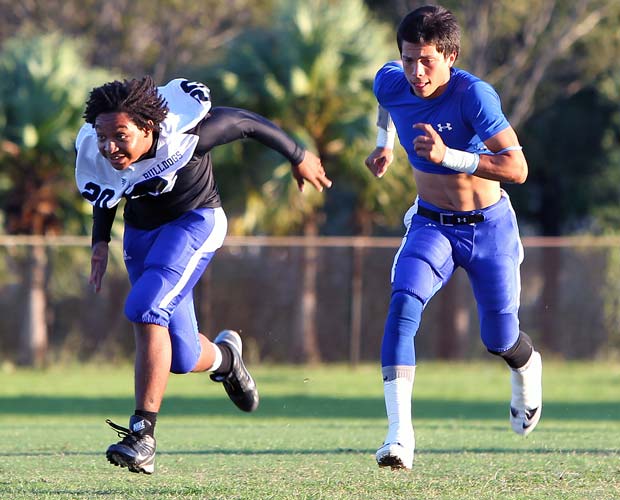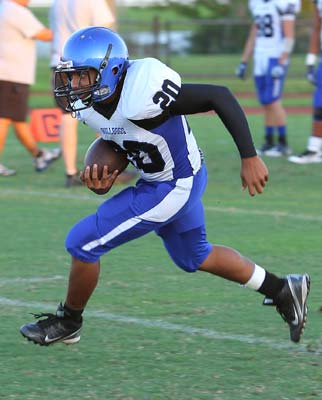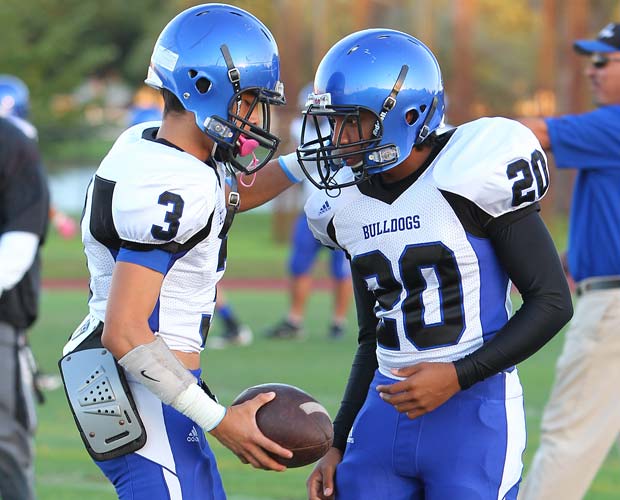Red Flag
Pollard warms up by running with teammate Jamie Jarquin before last Saturday night's game.
Photo by Stuart Browning
Pollard ran with his eyes wide as a youngster, playing for his dad on the Liberty City Warriors in Pop Warner leagues. The sixth of seven children, he started playing tackle football at the age of 4. He wore Deion Sanders' number 20 and was a flash on both sides of the ball.
"He was even better in basketball," said Joseph, who coached both sports. "He was a great point guard. When he was 6, he started on a 9-and-under team. He could dribble and shoot and pass. We have all sorts of trophies and pictures still."
His greatest asset on the court, cruelly enough, was his vision. He saw the entire court.
"That's when we started to figure out there was a problem," Joseph said. "He couldn't find passes. People would throw him the ball and he wouldn't see it coming. It raised a red flag."
He wore goggles at first. But they didn't help. Glasses didn't either.
His peripheral vision was fading. He could see OK in front of him, but even that became blurred and discolored.

Pollard carries during warm-ups last Saturday.
Photo by Stuart Browning
"When doctors confirmed the worst and made the diagnosis – that he would lose his vision permanently – Pollard was in complete denial. Then again, he was only 9.
"I was shocked," he said. "I couldn't believe it. I kept telling the doctor, ‘You're lying, you're lying.' When I finally believed it, it made me sad and I started to cry."
Joseph said he still cries. Partially because he wonders what might have been for his son, but moreso because of his son's resilience and fearlessness.
"He doesn't like pity and never has," Joseph said. "He's never wanted to be treated any differently than anyone. When he goes to the kitchen, he finds his own glass. He puts away his own clothes. He's a strong kid. He took it better than any of us did. He never missed a beat with it. He accepted it and has strived to be the best person he can."
Pollard, always a good student, said his anger and sadness turned suddenly.
"I remember thinking, 'I'm no crybaby,'" he said. "I got over it. I thought enough is enough."
Instead of dreaming about being the next great point guard or defensive back, he dreamed about being the next great musician.
"If they can play the piano and sing and be blind, then I can do it too," he said.
After seven years of pursuing those dreams, his pull back to the athletic field was too great. That's why he approached Rojas.
"I wanted to see if I could play football again and come back to my old dream," he said. "I thought about it. I can still see colors and figures. I can still play running back. As long as I don't go out for passes, as long as they're just handoffs, I can still do it."
And Rojas was about to give him that shot in a game.

Teammate Jamie Jarquin instructs Pollard before last Saturday night's game.
Photo by Stuart Browning
